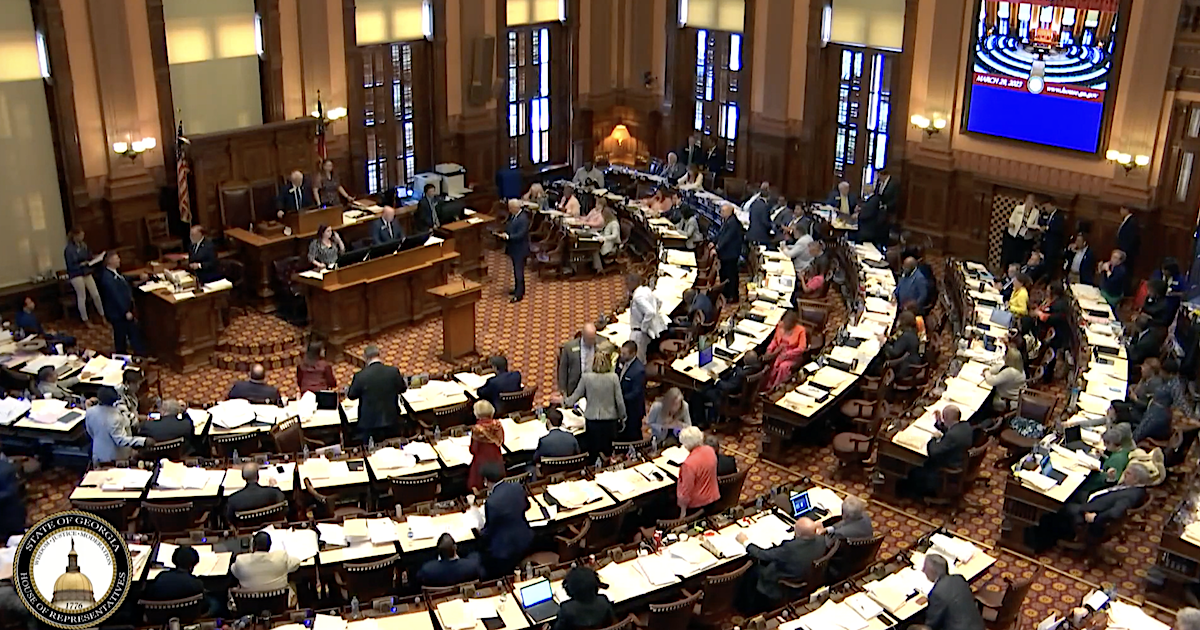
Georgia lawmakers are agreeing to a state budget that will pay full tuition for all college students receiving a HOPE Scholarship while boosting pay for all state and university employees and public school teachers.
House and Senate leaders signed an agreement on Wednesday for the $32.5 billion state budget that begins July 1. Both chambers must approve the measure before the session concludes Wednesday.
The budget cuts some teaching funds at the state’s public universities but not as much as the Senate had initially proposed. The Senate proposed the cuts as part of a dispute with the House over rules to allow new hospitals to be built and funding for Augusta University’s hospital.
“The only people in this budget who are getting 100% of what they want are our students on HOPE.” – House Appropriations Committee Chairman Matt Hatchett
Counting federal and other money, the state would spend nearly $56 billion.
Lawmakers agreed with Gov. Brian Kemp’s plans to pay full tuition for everyone receiving a HOPE college scholarship and to give all state employees and public school teachers $2,000 raises. In the agreement, some state law enforcement officers would get $6,000, up from a $4,000 bump sought by the House.
“The only people in this budget who are getting 100% of what they want are our students on HOPE,” House Appropriations Committee Chairman Matt Hatchett, a Dublin Republican, said Monday morning as the agreement was signed.
The deal would eliminate the current two-tier system of lottery-funded HOPE Scholarships, going back to the original system of paying full tuition for all high school graduates who earn a B average. While Zell Miller scholars who earn higher grades and a minimum standardized test score get full tuition now, others only get 90%. The agreement also boosts the amount for HOPE Scholarship recipients who attend private colleges in Georgia.
Georgia’s budget pays to educate 1.75 million K-12 students and 465,000 college students, house 48,000 state prisoners, pave 18,000 miles (29,000 kilometers) of highways, and care for more than 200,000 people who are mentally ill, developmentally disabled, or addicted to drugs or alcohol.
Work on the budget got tangled with Republican Lt. Gov. Burt Jones’ push for a bill that could allow a new hospital to be built near his home in Butts County.
That could financially benefit his family if it’s built on land his father owns.
The dispute is also linked to an attempt by Wellstar Health System to take over Augusta University’s hospitals and to a House push for additional changes to the state’s mental health system.
Senators proposed an $87 million cut in university teaching, as well as an $18 million reduction in university health insurance. The final agreement puts back the health insurance money and cuts teaching by about $66 million out of a roughly $9 billion University System of Georgia budget. Lawmakers said universities should cover the shortfall with some of their roughly $500 million in cash on hand.
Augusta University earlier this year was given $105 million, at Kemp’s behest, to purchase a new electronic medical records system. Jones argues that money was an unfair giveaway to Marietta-based Wellstar Health System, which is in talks to take over Augusta University hospitals. Wellstar owns a small hospital in Butts County and opposes the push for a competing hospital there.
Lawmakers somewhat reduced proposed Senate cuts to Georgia Public Broadcasting and Augusta University’s Georgia Cyber Center. The public television and radio agency would lose about $1.4 million in state funding, while the Cyber Center would lose about $3.2 million.
Lawmakers agreed on more spending for mental health and addiction treatment funding, reflecting lawmakers’ continued emphasis on those issues.
The agreement will again give $500 bonuses for 54,000 retirees in the State Employees Retirement System. Retirees in that plan have not received regular cost-of-living increases.
Lawmakers agreed to pay for home services for 500 more people with intellectual, developmental, or physical disabilities — up from the 250 originally proposed by Kemp. The state has thousands on a waiting list for such services.
___________
This article appears on Now Habersham through a news partnership with GPB News






